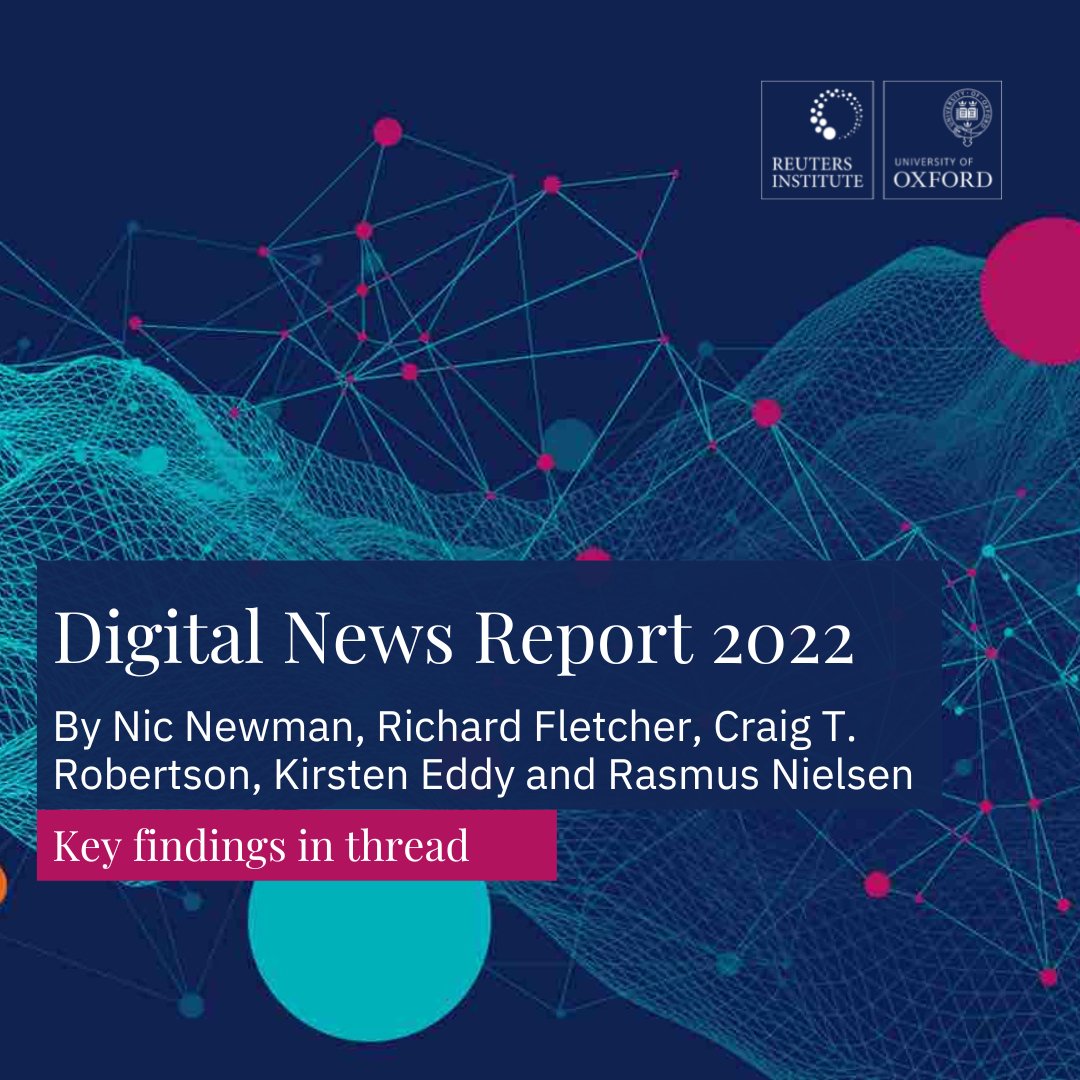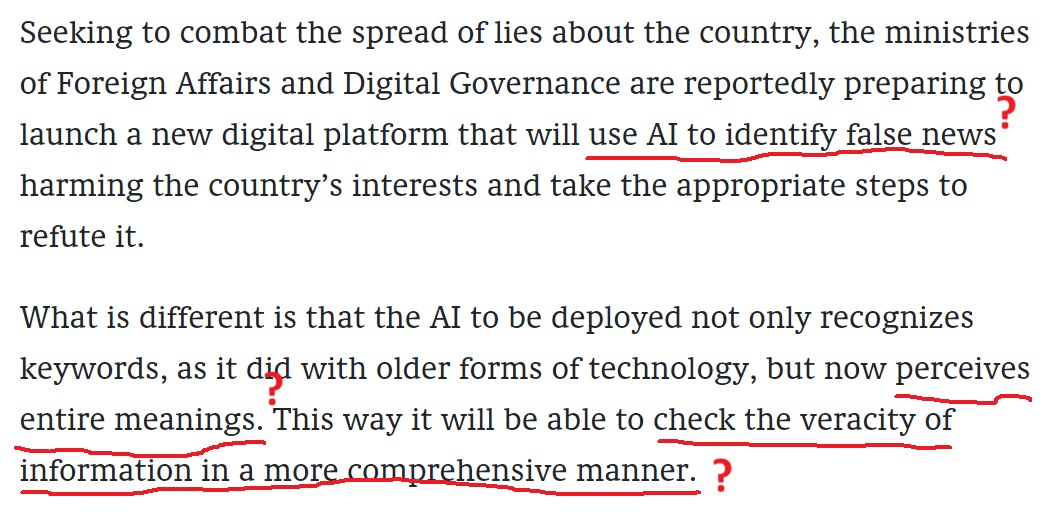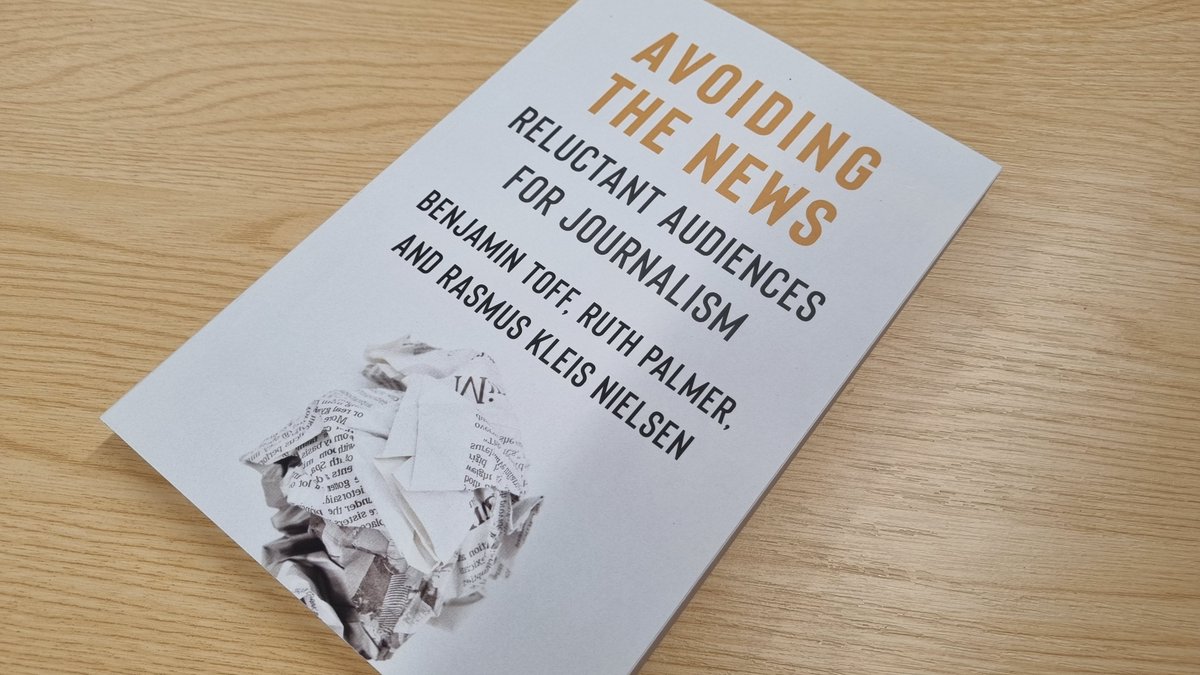2022 Digital News Report out now. A huge effort by an amazing team that I'm proud to be part of.
We cover 46 markets on six continents, accounting for more than half of the world's population.
Full report reutersinstitute.politics.ox.ac.uk/digital-news-r…
Follow #DNR22
And a few highlights in thread 1/9
We cover 46 markets on six continents, accounting for more than half of the world's population.
Full report reutersinstitute.politics.ox.ac.uk/digital-news-r…
Follow #DNR22
And a few highlights in thread 1/9

A growing number of news media willing to embrace digital and able to offer distinct journalism in an incredibly competitive marketplace do well by doing good. But many struggle in an unforgiving winner-takes-most online environment, for example when it comes to subscriptions 2/9 

While many commercially successful news media primarily serve audiences that are, crudely put, like me (affluent, highly educated, privileged etc) our findings document connection btw journalism and much of the public is fraying. Interest (and trust) is down,news avoidance up 3/9 

More broadly, in many countries much of the public question whether the news media are independent of undue political or government influence. Even in very privileged countries, barely half say news media are independent of undue influence most of the time. 4/9 

These issues are compounded by differences in how new generations use media – looking specifically at those under 25 we find much less interest in connecting directly with news media, different views on what journalism ought to look like, much heavier reliance on social media 5/9 

Across markets 54% say they worry about identifying the difference btw what is real and fake on the internet when it comes to online news. More of those who say they mainly use social media as source of news (61%) are worried than among those who don’t use social at all (48%) 6/9 

Despite these concerns, access to news continues to become more distributed.
Across all markets, less than a quarter (23%) prefer to start their news journeys with a website or app, down 9pp since 2018. Those aged 18–24 have an even weaker connection with websites and apps. 7/9
Across all markets, less than a quarter (23%) prefer to start their news journeys with a website or app, down 9pp since 2018. Those aged 18–24 have an even weaker connection with websites and apps. 7/9

As publishers, but also individual journalists, seek to reach people via social media, in most countries, half or more of respondents feel journalists on social should stick to reporting the news. But sizable minority feel they should be allowed to express personal opinions. 8/9 

Report lead author is @nicnewman working with @richrdfletcher Craig Robertson @kirstenaeddy and myself.
It is made possible by 18 sponsors, our amazing country partners, and the whole @risj_oxford team.
It takes a village and I'm so happy to be part of this particular one. 9/9
It is made possible by 18 sponsors, our amazing country partners, and the whole @risj_oxford team.
It takes a village and I'm so happy to be part of this particular one. 9/9

Thanks #DNR22 sponsors @BBCNews @BAItweets @UniCanberra @centre_sur @CommvdMedia @EdelmanUK @FrittOrd @GoogleNewsInit @BredowInstitut Korea Press Foundation @mediasaatio @fcomunav @Ofcom @OSFJournalism @roskildeuni, @NHK @Reuters & @FundacionGabo (supporting Spanish translation).
In addition to everyone involved at the RISJ across admin, comms, research, our country partners include (amont the twitterati) @AnnieM11 @paisana_miguel @gustavolcardoso @fjfernandez @nunezmussa @PabloBochon @ColetteB @rodcarro @joyjenkins @gravesmatter @cgicheru1 @ItsAdaugoO …
and @negredo @AveAmoedo @alfvara @elsamoreno70 @JFKaufmann @yasuomisawa
@RalucaNRadu @sardanapal @jbjorgan @janet_steele @TGrootKormelink @AlessioCornia @ivorytowerjourn @eva_bognar @antoniskalog @HoeligS @UweHasebrink @alicanth @Esareuna @htchen_ @VStetka @sorapark ...
@RalucaNRadu @sardanapal @jbjorgan @janet_steele @TGrootKormelink @AlessioCornia @ivorytowerjourn @eva_bognar @antoniskalog @HoeligS @UweHasebrink @alicanth @Esareuna @htchen_ @VStetka @sorapark ...
and @ChrisRoper @JantimaKheokao @LihyunL @kinpah @LinardsUdris @Mark_Eisenegger @zrinjkaperusko @stefanrantonov @ikepicone @SRSparviero @JosefTrappel @cuevacha.
Thanks, thanks, thanks everyone! It's always amazing to see this come together, then share it with the world.
Thanks, thanks, thanks everyone! It's always amazing to see this come together, then share it with the world.
• • •
Missing some Tweet in this thread? You can try to
force a refresh











